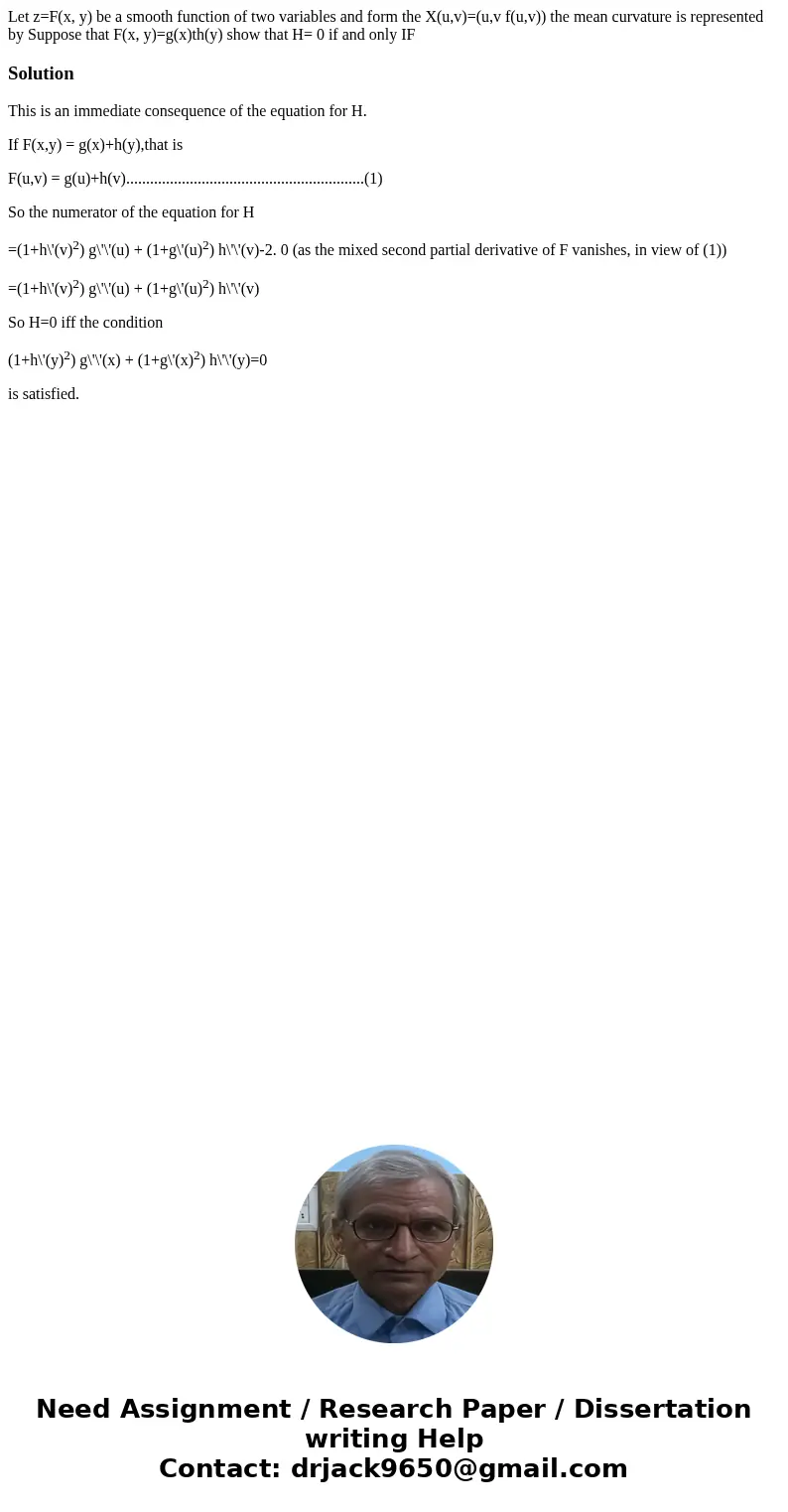Let zFx y be a smooth function of two variables and form the
Let z=F(x, y) be a smooth function of two variables and form the X(u,v)=(u,v f(u,v)) the mean curvature is represented by Suppose that F(x, y)=g(x)th(y) show that H= 0 if and only IF
Solution
This is an immediate consequence of the equation for H.
If F(x,y) = g(x)+h(y),that is
F(u,v) = g(u)+h(v)............................................................(1)
So the numerator of the equation for H
=(1+h\'(v)2) g\'\'(u) + (1+g\'(u)2) h\'\'(v)-2. 0 (as the mixed second partial derivative of F vanishes, in view of (1))
=(1+h\'(v)2) g\'\'(u) + (1+g\'(u)2) h\'\'(v)
So H=0 iff the condition
(1+h\'(y)2) g\'\'(x) + (1+g\'(x)2) h\'\'(y)=0
is satisfied.

 Homework Sourse
Homework Sourse